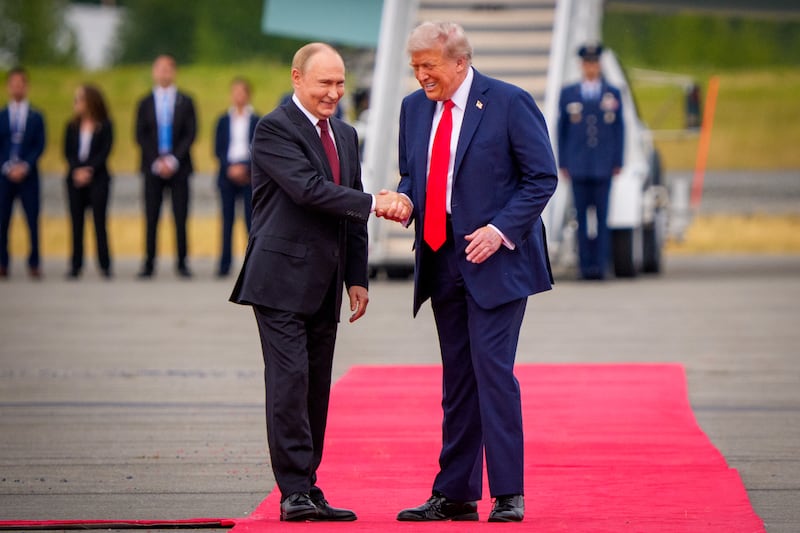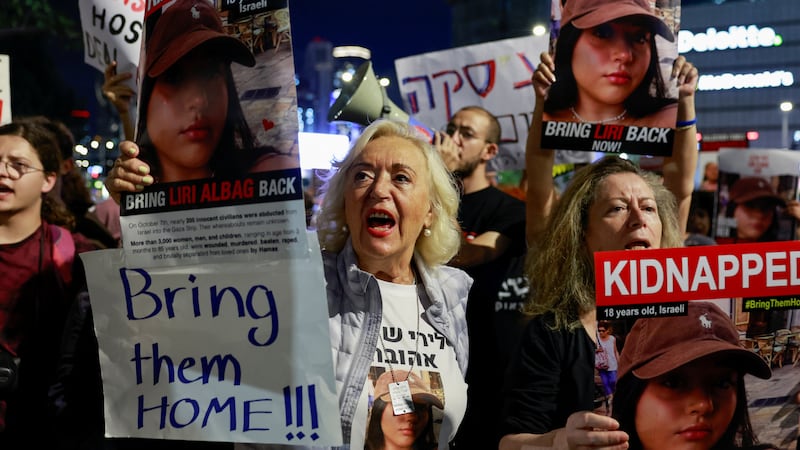There was no red carpet this time and no flyover.
But Benjamin Netanyahu had an unlikely teacher in Vladimir Putin on how to handle Donald Trump and his out-of-control ego.
Trump concluded his historic meeting with Putin in Alaska by boldly predicting that he was “pretty close” to a deal to end the bloodshed in Ukraine.

Six weeks later, a peace deal is so unlikely that even Trump has given up pretending it’s going to happen.
He was outplayed and outthought by one wily, experienced world leader—and now he’s been outfoxed by another.
The Israeli prime minister may be deeply disliked even within his own country, but he is the only winner here.
At the White House on Monday, Trump grandstanded an agreement that he boasted only he could have brokered and gave every impression that it would finally bring peace to the Middle East.
For a president to herald a peace deal that amounts to “one of the biggest days in civilization” requires more than a wing and a prayer.
It also necessitates an agreement.
Sure, you can take the credit and thank your team and every friendly foreign leader you’ve met for the past two weeks if you pull off a genuine, history-making triumph.
Trump’s loyal golf buddy, Steve Witkoff, was supposed to bring Ukraine over the line but failed. Now, there he was, getting credit for untangling Gaza’s Gordian knot.
Someone needs to inform the White House that both sides need to agree to a deal.
In these circumstances, the alternative is generally called a war.
Or The Art of a Steal.
The horror of October 7, when Hamas terrorists led a nightmare killing spree, murdering 1,200 people and taking 251 hostages, triggered a retaliatory Israeli military offensive in Gaza, which has killed tens of thousands of Palestinians.
World opinion has prevented Israel from going into Gaza with every gun blazing to take revenge. Too many innocent people have already died. That, and the fear that Hamas would execute the remaining Israeli hostages.
Now Trump has taken the handbrake off.
He namechecked Qatar, Saudi Arabia, Turkey, Jordan, Egypt, Indonesia, Europe, Pakistan, and even, bizarrely, Iran, as backers of his 20-point peace plan that would make him the leader of a “Board of Peace” to rule the region.
He even said, “So, the hostages are coming back …the young men are coming back immediately.”

Protesters call for release of hostages held in Gaza. (REUTERS/Ammar Awad)
(REUTERS/Ammar Awad) / Reuters
Then came the kicker. “I am hearing that Hamas wants to get this done, too, and that’s a good thing.”
Hamas was “the one group that we have not dealt with.” He was leaving it to the “Arab and Muslim nations.”
“I think they probably have an understanding,” he added. “They haven’t, maybe mentioned that.”
So Hamas hasn’t agreed, then. And the return of the Israeli hostages wasn’t a done deal.
If we were confused up to this point, Trump was crystal clear on what he meant when he described the consequences of Hamas rebuffing his offer.
“Israel would have my full backing to destroy the threat of Hamas,” he said.
So for all his boasts about a breakthrough for the generations, there was no agreement, as far as we could tell, from the Palestinians or from Hamas.
No wonder, as Trump told his friend “Bibi”, they “have my name up in lights” in Israel. “I don’t know why, but they like me,” he said.
As a real estate person, he added, he couldn’t really understand why Israel gave up “the ocean” at Gaza, the “most magnificent piece of land in the Middle East” in the first place.
If the terrorist group really was ready to surrender the hostages and leave Gaza, why not wait for confirmation? Why jump the gun?
Vladimir Putin and Benjamin Netanyahu know the answer to that.
There is as much chance of peace in Gaza after Trump’s interference as there was of peace in Ukraine.
The moment is all Trump cares about. The Show.
And he will wash his hands of all blame before the future goes down in flames.
The post Opinion: Why ‘Peacemaker’ Trump Never Manages to Close a Deal appeared first on The Daily Beast.




